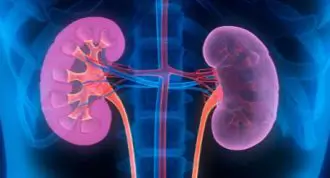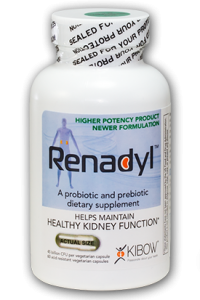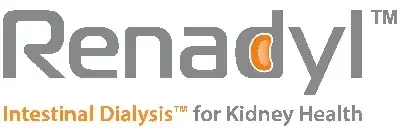Stages I – III of CKD
Seeing the signs of chronic kidney disease (CKD)
Each stage of CKD is progressively more serious, as measured by tests that measure kidney function, specifically a test called the glomerular filtration rate, or GFR. GFR is an indicator of how well the kidneys are filtering the blood and eliminating toxins. To learn about GFR and other indicators of CKD such as creatinine and blood urea nitrogen, visit the diagnosing kidney disease page.
| The Five Stages of Chronic Kidney Disease3 | |||
| Stage | Description | Glomerular Filtration Rate (GFR) | Kidney Function Deterioration |
| 1 | Kidney damage (protein in urine) and normal GFR | More than 90 | 50% – 60% |
| 2 | Kidney damage and mild decrease in GFR | 60 – 88 | 60% – 70% |
| 3 | Moderate decrease in GFR | 30 – 59 | 70% – 77.5% |
| 4 | Severe decrease in GFR | 15 – 29 | 77.5% – 85% |
| 5 |
Kidney failure – End-Stage Renal Disease (dialysis or
kidney transplant needed)
|
Less than 15 | 85% and above |
The following look at stages 1–3 gives you an idea of how quickly CKD can progress to become a serious health concern:
Stage 1 — At stage 1, there are likely to be few, if any, metabolic indicators of disease. At this stage, there may be some protein or blood excreted in the urine, but this is not an indication of how well the kidney is functioning. By the time many people are diagnosed with kidney disease, it has often already progressed past stage 1, since the symptoms may be difficult to recognize without an examination.
Stage 2 — Creatinine levels may have risen, protein will be present in the urine, and the GFR will continue to decrease, meaning the kidneys are not filtering the blood effectively.
Stage 3 — At this stage, there has been a major loss in kidney function (70%–77.5%). The creatinine level has continued to rise and more physical side effects, including fatigue puffiness in the hands, feet, or ankles, and back pain, may occur. Patients may also sense changes in the way food tastes, experience frequent urination, and slow digestion.
Although it can be difficult to diagnose CKD before it has progressed to the later stages, it can be extremely beneficial. Click here to learn about the late stages (4–5) of CKD or learn about the management options for stages 1–3 and how diet, exercise, and probiotics can help patients feel better and live long, productive lives.
Renadyl™ | Natural supplement for Kidney Health
Renadyl™ is a patented and proprietary probiotics dietary supplement that has been scientifically formulated and clinically tested. Renadyl™ metabolizes nitrogenous waste that has diffused from the bloodstream into the bowel. Nitrogenous wastes are utilized by Renadyl™ as nutrients. As probiotics grow and multiply, they consume more nitrogenous waste and therefore effectively help maintain healthy kidney function. The nitrogenous metabolites are eliminated as solid waste/fecal matter. Renadyl as Kidney supplement for Chronic Kidney Problems / Disease – CKD
Note: The statements on this website and the products offered have not been evaluated by the US Food and Drug Administration. These products are not intended to diagnose, treat, cure or prevent any disease. Contents herein are being provided solely for the purpose of information. If you are pregnant, do not take any of our products listed herein. Also, please consult your physician or a qualified medical professional prior to taking this or any other dietary supplements or if you feel you have uremic, metabolic or related health conditions.







